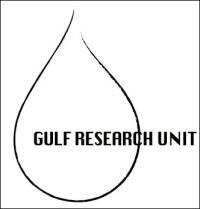By Torgeir Fjærtoft
In my previous blog input I maintained that to establish viable successor regime to the toppled dictators, the new power holders must initiate regional economic integration to create the employment necessary for social and political stability. Empowering people without improving their lives will undermine the empowerment because the continued frustration and rage can only be controlled by force.
So far, of the affected or vulnerable countries in the region only Saudi Arabia has responded to the Arab Spring by an economic program in the form of boosting internal transfers of oil income. The Saudi intention is to contain internal ramifications of the regional popular uprising by improving people’s lives without empowering them.
As an oil producer with liquid assets abroad Saudi Arabia has a domestic freedom of maneuver that the new regimes following the Arab Spring have yet to acquire, be they oil producers or not. The regime in Riyadh can therefore be seen as a case study of the reverse end of the evolving Arab Spring, which has started with empowerment and needs to develop an effective economic policy. In the current context, an economic policy addressing the most pressing social problems would need three components: distribution, employment and production. Saudi Arabia has succeeded as oil producer in terms of volume and income but failed to create commensurate employment. Economists, prone to reduce complex, multi-determined problems to simple equations, call for reversal of internal transfers, reduction in public sector employment, economic diversification by investments in new sectors, and competition. However, these are not options available to Saudi decision-makers at the moment.
What outside observers invariably fail to see is that the monarchy steeped in its ancient traditions is in its essence also a social contract. This basically tribal political culture is in one sense also modern. Power, though in name absolute, is actually the function of elaborate transactions. Like in a Western welfare state, political support is earned by providing for constituents who judge their leaders by the yardsticks of their own lives. At the same time, power is also the function of the ability to negotiate a modicum of consensus within the elite, which means compromise, balancing opposing demands. These two constraints, people’s welfare and elite consensus, delineate the freedom of maneuver for the Saudi decision-makers, also now. Attempts to transcend these constraints will jeopardize the political stability.
There are two known cases when reductions in internal transfers had serious political ramifications. In the first instance, when in 1956 credit dried up, the extended royal family mobilized to prevent King Saud from establishing his own dynasty, leading to the current collective royal leadership model. In the second instance, the fall in oil prices in the 1980’s led to the Sahwa opposition in the early 1990’s. The Sahwa movement was precipitated in no small degree by reducing the number of public sector positions among the clerical graduates denied the presumed promise of secure employment.
Like in all societies, frustrated young men seek alternative ideologies and faiths with rejection as the common denominator. In Saudi Arabia the elite has throughout the history of the official Wahabist doctrine compromised by cooperating with external powers, first with the Ottomans, then the British and today with the US. Compromise, however necessary or wise, makes the official ideology vulnerable to domestic opposition groups, such as the Sahwa, who may reclaim it in a purer form. An additional vulnerability is the Shia minority surrounding the oil fields. Relations range from tenuous to tense.
By our Western standards, Saudi Arabia falls short, and we would like the Arab Spring as a democratic movement to take hold there as it did in Egypt. For this purpose we may accept a period of instability over the current stability. However, we may err in assuming that the alternative to the current stability is a higher degree of democracy, respect for human rights and the empowerment of ordinary people, including women and minorities. The alternatives could be worse than the current imperfections. Changes could have other consequences than those intended by the initiators. One consequence of the Libyan uprising against Khadafy has been the flow of frustrated men and arms to terrorist movements in the region.
Destabilization of Saudi Arabia, as pivotal oil producer indispensable to the global economic stability and full of arms, could prove infinitely worse. If the Saudi decision-makers were to follow the advice of most economists, such a scenario would under the current circumstances be much more likely than stable economic growth and democratization.
